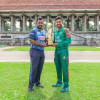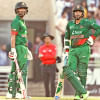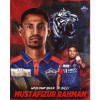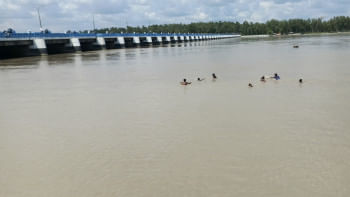Will Shakib’s captaincy cure Bangladesh’s DRS malaise?

- In the six Tests played in their last three series, Bangladesh had seen a total of 33 unsuccessful reviews.
- During the same period, the Tigers were only able to take 17 successful reviews.
- However, not all the unsuccessful reviews were due to a bad call from the Tigers' camp as a number of decisions were turned down on umpire's call.
Technological advancement has aided all forms of sports worldwide. While the introduction of the Decision Review System (DRS) has seen the rate of errors made in matches drop down significantly and also provided a clarity to players and viewers alike, its effectiveness still depends highly on the refined decision-making from the cricketers out on the field.
And in modern cricket, the three DRS calls allocated in Test cricket to each of the teams go a long way in almost determining the outcome of a game.
Apart from the usual cricketing issues, the one other thing that Bangladesh have struggled with in recent times, especially in Tests, is their inability to make proper use of the DRS.
To put things into perspective, Bangladesh have seen a total of 10 unsuccessful reviews in their recent-most two-Test series against Sri Lanka while getting only six reviews upheld successfully. In the series before that, away to South Africa, Bangladesh saw a total of 12 unsuccessful reviews against six successful ones in the two-match Test series.
Even in the preceding away Test series against New Zealand in January this year, Bangladesh had 11 reviews turned down while seeing only five reviews being successful. Interestingly, it was in the first Test in Mount Maunganui in which the Tigers clinched a historic eight-wicket victory that they saw a total of eight reviews turned down.
But it is true that only the numbers don't accurately reflect the review taking precision of a side as not all the unsuccessful reviews were due to a bad call from the Tigers' camp with a number of decisions turned down on umpire's call. Then again, even considering that the numbers aren't a true reflection of Bangladesh's ability to make the right call in going upstairs at opportune moments, a total of 33 unsuccessful reviews against 17 successful ones in last six Tests certainly do not bode well for the Tigers.
In fact, there were instances of woeful and, at times, hilarious DRS calls made by Bangladesh. The most glaring blunder made by Mominul Haque's side was probably the one made against the Kiwis during their historic Test win.
In the 37th over of New Zealand's second innings, a loud appeal from bowler Taskin Ahmed and the fielders were made for an LBW against right-hander Ross Taylor. Even though the umpire had turned it down immediately, Mominul went on to review it with seconds left on the timer only to be embarrassed by the review shown on the big screen. Not only did the ball have any connection with the pad, it was defended with the middle of the bat by the Kiwi batter, which only brought to ears a muffled laughter from the commentary box.
During the first Test against Sri Lanka in Chattogram last month, Bangladesh lost two of their reviews inside the first session of the game.
Not only that Bangladesh regretted taking ill-timed reviews in recent past, there have also been handful of instances when the situation was the other way around. Such was the case in the second Test against South Africa when Mominul decided not to review after umpire had turned down a solid LBW appeal from pacer Khaled Ahmed against Sarel Erwee – who was batting only on 4 at that time.
It is true that the skipper only gets a few seconds before making a DRS call and has to rely heavily on the body language of his troops, still the Tigers, as a team, ought to follow a more judicious approach in making such calls.
With the Mominul-era concluded, it will be interesting to see how Bangladesh do in regards to their DRS calls in the upcoming Test series against the West Indies under the leadership of Shakib Al Hasan, considered one of the 'best thinkers' of the game.

 For all latest news, follow The Daily Star's Google News channel.
For all latest news, follow The Daily Star's Google News channel. 








Comments